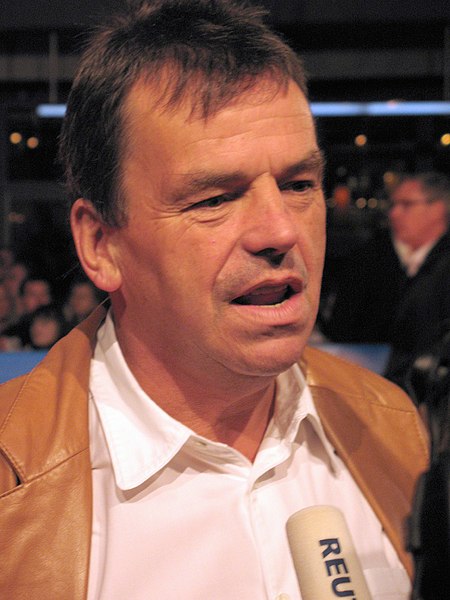Neil Patrick Jordan is an Irish film director, screenwriter, novelist and short-story writer. He won an Academy Award, two BAFTA Awards, a Golden Lion and a Silver Bear. He was honoured with receiving the French Ordre des Arts et des Lettres in 1996. He is known for writing and directing acclaimed dramas such as Mona Lisa (1986), The Crying Game (1992), Michael Collins (1996), The Butcher Boy (1997) and The End of the Affair (1999). Jordan also created the Showtime series The Borgias (2011) and Sky Atlantic's Riviera (2017). Jordan is also known as an author. He wrote Night in Tunisia (1976) which won the Guardian Fiction Prize in 1979.
Jordan at the 2010 Tribeca Film Festival
Neil Jordan at the German premiere of The Brave One, 2007
Jordan with Alicja Bachleda-Curuś and Colin Farrell at the Ondine premiere, 2010 Tribeca Film Festival in New York
The 65th Academy Awards ceremony, presented by the Academy of Motion Picture Arts and Sciences (AMPAS), honored films released in 1992 in the United States and took place on March 29, 1993, at the Dorothy Chandler Pavilion in Los Angeles beginning at 6:00 p.m. PST / 9:00 p.m. EST. During the ceremony, AMPAS presented Academy Awards in 23 categories. The ceremony, televised in the United States by ABC, was produced by Gil Cates and directed by Jeff Margolis. Actor Billy Crystal hosted the show for the fourth consecutive year. In related events, during a ceremony held at the Century Plaza Hotel in Los Angeles on March 6, the Academy Awards for Technical Achievement were presented by host Sharon Stone.
Official poster
Clint Eastwood, Best Picture and Best Director winner
Al Pacino, Best Actor winner
Emma Thompson, Best Actress winner







